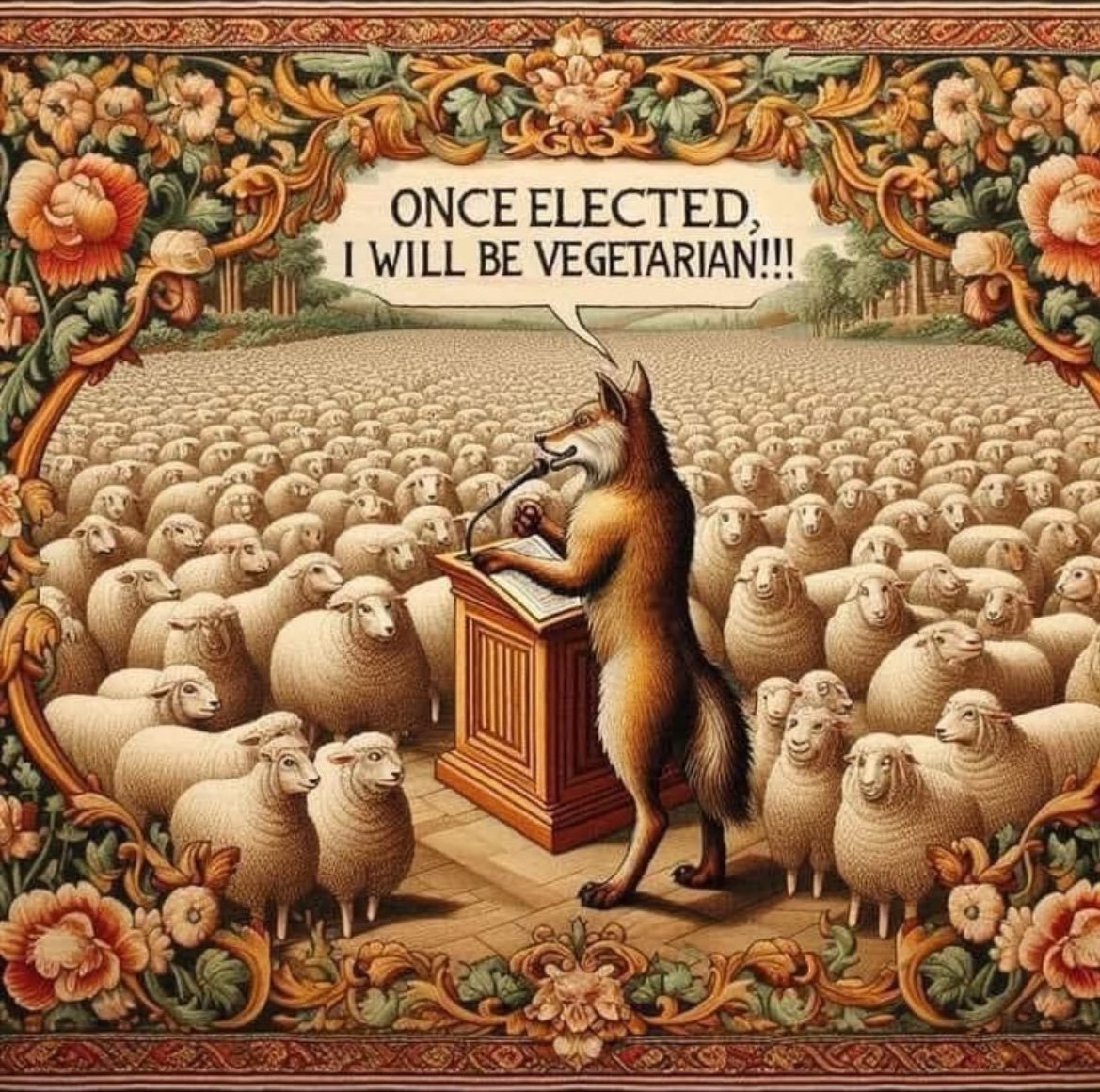In the intricate landscape of political ideologies, a metaphorical tale unfolds: the wolf that secures its future not through brute force alone, but by cunningly assimilating into the flock of sheep. This wolf, symbolic of ideologies such as Islamism and socialism, adopts a strategy of blending in, speaking the language of the herd, and promising a future that seems benign and promising. 
Imagine this scene: the wolf, sleek and calculated, lives among the sheep, quietly assuming their guise and participating in their collective life. It doesn’t openly declare its predatory nature; instead, it whispers to the sheep, “If you elect me as your leader, I will be vegetarian.” This statement, seemingly innocuous, masks a deeper intention—to gain power and influence under the guise of benevolence.
In the context of political ideologies, this strategy mirrors the tactics employed by certain movements. Islamism, for instance, often presents itself as a solution rooted in religious values, promising justice and societal harmony. Similarly, socialism advocates for equality and social justice, promising to uplift the disadvantaged and create a fairer society. These ideologies, like the wolf among sheep, appeal to noble ideals and aspirations.
However, beneath the surface lies a crucial distinction: the potential for deception and manipulation. Just as the wolf deceives the sheep with promises of vegetarianism, ideologies can deceive by presenting an idealized future while masking their true intentions or the practical implications of their policies.
Islamism, for example, may advocate for religious values and social cohesion but can also enforce strict interpretations that suppress individual freedoms. Socialism, while advocating for economic equality, can lead to centralized control and limit entrepreneurial freedoms.
The metaphor of the wolf among sheep serves as a cautionary tale. It urges us to look beyond superficial promises and delve into the core principles and implications of any ideology or leadership. Vigilance is essential in discerning whether an ideology genuinely promotes the welfare of all or conceals ambitions that may undermine individual rights and freedoms.
In conclusion, the wolf among sheep reminds us of the importance of critical thinking and scrutiny in evaluating political ideologies. It prompts us to question not only the promises made but also the methods and intentions behind them. By understanding this metaphorical narrative, we equip ourselves to navigate the complex terrain of politics with clarity and foresight, ensuring that we do not unwittingly invite the wolf into our midst.


